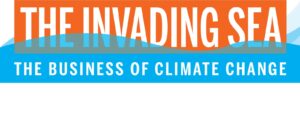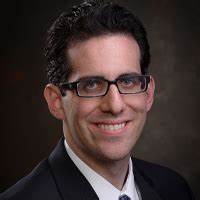An interview with Chris Evanich, program director for Energy as a Service
As part of its series “The Business of Climate Change,” The Invading Sea spoke with Chris Evanich, program director for Energy as a Service with the multinational company Schneider Electric. “The Business of Climate Change” highlights the climate views of business men and women throughout the state.
Here are some of the highlights from the interview.
Let’s start with an explanation of your role at Schneider Electric and what Energy as a Service is.
I’m responsible for microgrid business development and energy as a service. Microgrids are a power system that allows you to run both in parallel, and then also be able to island from the grid during a time of need.

Energy as a service is a fairly new concept and this is where people understand that they need this infrastructure. It could be renewable energy, it could be batteries and other pieces of equipment, but what’s always hard for them is to be able to finance this.
Energy as a Service is unique because it allows people to use a third party who would own and operate the equipment, and then you’d have a monthly fee that you would pay to have those assets on your site.
What does resilience mean in terms of energy systems and why is that important for Florida?
Everyone’s going to have a different definition. A homeowner for themselves would have the food spoiled in their fridge. If we look at a business, for them, it’s their point of sale. The hospitals have a very critical need for power. So, depending on who you are, there’s a different definition of what you need for resilience and how it affects you.
Can you give some examples of how energy systems here in Florida have been affected in the past?
If we look back at Hurricane Wilma, we had power outages for about a week. Irma was a stronger storm that came through at a category 4. It was days for some people who were out of power.

I’m in the Tampa Bay area and there were folks in that area who were out of power for a week. We see the unfortunate incident that they call car-pole accidents, meaning the car just hits a telephone utility pole and it causes an outage. We have a lot of wildlife here in the state of Florida and because of that, they get into the overhead conductors or they get inside of the underground distribution equipment and it causes outages.
Are there communities in Florida now that are developing microgrids? Are there community-wide microgrids?
We’re just starting to see it here in the state of Florida. Developers are putting solar on the roof, they’re putting some other solar assets that are centrally located like at a clubhouse, and then they’re having a battery system as well that’s providing that voltage source. They’re even including a natural gas generator. We’re starting to see homeowners say, “I want to live somewhere that allows me to be this net-zero community or carbon-free community.”
Do you have any examples of these projects being done here in Florida?
A good example of something that’s been completed is at Babcock Ranch near Naples. It was our first sustainable community that utilizes renewable energy.
Are there things that lawmakers should be doing when it comes to Florida’s energy systems with regard to climate change?
I think we look at the renewable portfolio standards. A majority of states already have a standard. There’s, I think, 11 or 13 states now that have a goal of 100 percent renewables as we continue to move toward our path of lowering carbon emissions.
I think what we’ll see or what we should be seeing within the legislature is more of a push to continue installations of that renewable energy, whether it’s solar, or if it’s wind, or renewable, natural gas off of a landfill.
Kevin Mims, a Florida-based freelance journalist, is the producer of “The Business of Climate Change.”


